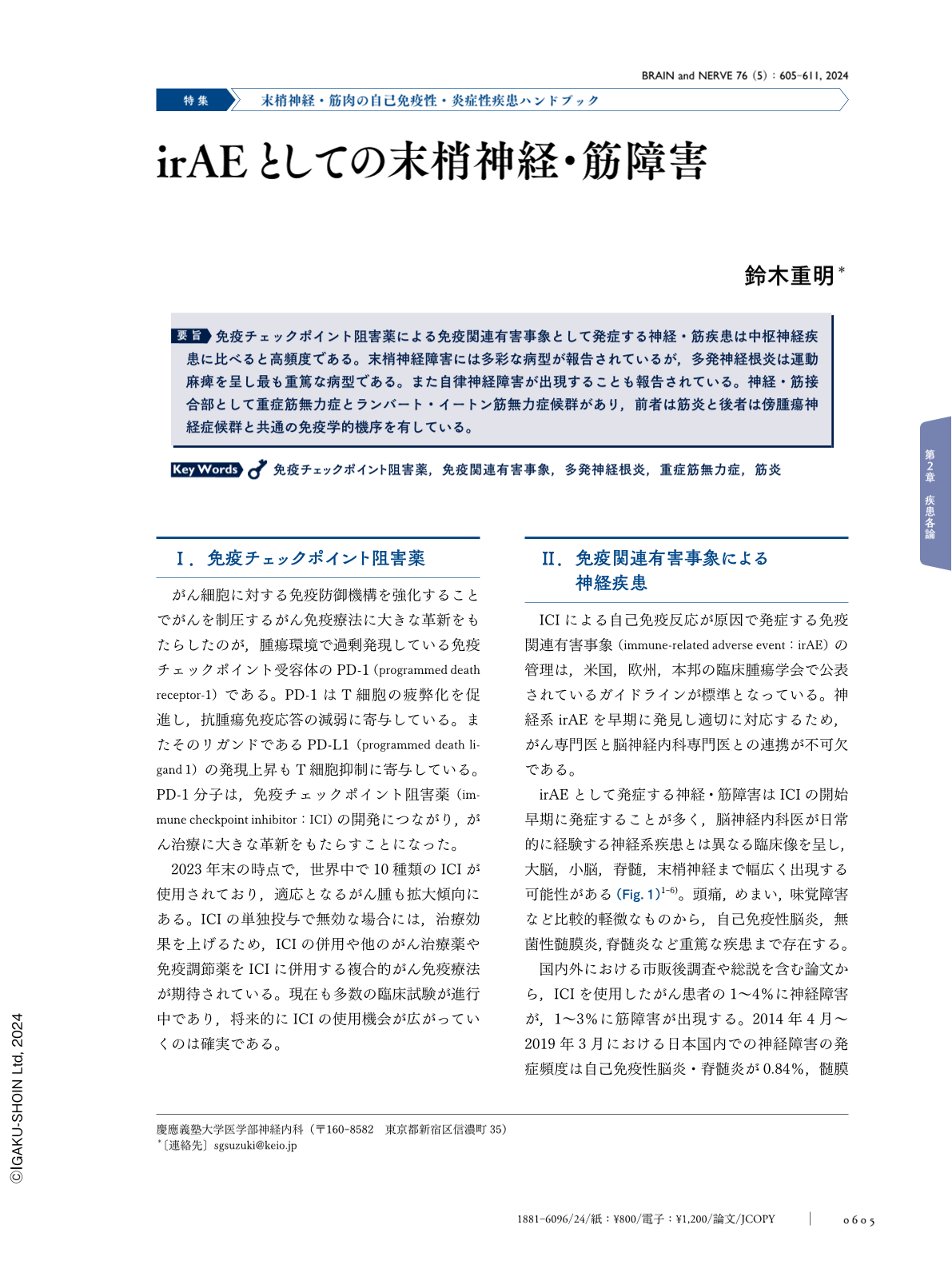Japanese
English
- 有料閲覧
- Abstract 文献概要
- 1ページ目 Look Inside
- 参考文献 Reference
免疫チェックポイント阻害薬による免疫関連有害事象として発症する神経・筋疾患は中枢神経疾患に比べると高頻度である。末梢神経障害には多彩な病型が報告されているが,多発神経根炎は運動麻痺を呈し最も重篤な病型である。また自律神経障害が出現することも報告されている。神経・筋接合部として重症筋無力症とランバート・イートン筋無力症候群があり,前者は筋炎と後者は傍腫瘍神経症候群と共通の免疫学的機序を有している。
Abstract
Neurological immune-related adverse events (irAEs) associated with cancer treatment with immune checkpoint inhibitors (ICI) present diverse clinical characteristics. Neurological irAEs affect the peripheral nervous system and muscles more than they affect the central nervous system. Among the various subsets of peripheral neuropathies, polyradiculoneuropathy, which includes Guillain-Barre syndrome and chronic inflammatory demyelinating polyneuropathy, stands out as the most severe form, leading to significant muscle weakness. ICIs can induce dysautonomia, including autoimmune autonomic ganglionopathy. Autonomic neuropathy represents a neurological irAE. Neurological irAEs of neuromuscular junctions include myasthenia gravis (MG) and Lambert-Eaton myasthenic syndrome (LEMS). Diagnosing MG or myositis independently can be challenging when they occur as irAEs. Myocarditis is sometimes observed as an irAE in patients with MG and can cause both severe heart failure and lethal arrhythmias, resulting in fatal outcomes. Anti-Kv1.4 antibodies are biomarkers of the severe form of MG and myocarditis. The administration of ICI in patients with small cell lung cancer increases the risk of LEMS. The distinction between LEMS is an irAE or a manifestation of paraneoplastic neurological syndrome is unclear as both conditions share common immunological mechanisms.

Copyright © 2024, Igaku-Shoin Ltd. All rights reserved.


